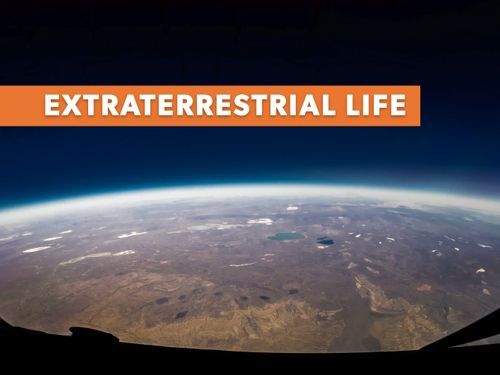Could intelligent life exist beyond Earth?
Oct 12, 2021 · 2 mins read
0
Share
To understand the probability of intelligent life existing on other planets, we first need to consider how likely it was to develop on Earth. The time window for life to appear and evolve into intelligent beings here was about 10 billion years, i.e. within the Sun’s lifetime.
Save
Share
A span of 10 billion years would be enough time (in theory) for an intelligent life form to develop space travel and escape Earth before it became engulfed by the Sun. In reality, intelligent life developed much quicker than that: in about one-fourteenth of the available time.
Save
Share
The relatively fast development of life on Earth indicates that life may generate spontaneously as long as the conditions are suitable. That means there could be many other stars whose planets have life on them.
Save
Share
There are star systems that could have formed five billion years before Earth did, so why hasn’t that headstart given rise to advanced life forms? According to astrophysicist Stephen Hawking, there are four possibilities that explain why we have not yet discovered alien life...
Save
Share
One possibility: the chances of life spontaneously appearing anywhere are so low that Earth is simply the only place in the known universe where it happened. Given that it took 2.5 billion years just for single cells to evolve into multicellular beings, we may be a one-off.
Save
Share
Another possible scenario: self-reproducing systems may have developed elsewhere in the universe… but they didn’t evolve into intelligent life forms. Intelligent life isn’t necessarily an inevitable product of evolution, which is a random process with numerous possible outcomes.
Save
Share
The evolution of intelligent life on other planets may have been interrupted by an asteroid collision, just as dinosaurs were wiped out on Earth about 66 million years ago. Hawking suggests that these collisions can happen every 20 million years, which means Earth has been lucky.
Save
Share
A third (and more pessimistic) explanation for the lack of life beyond Earth is that intelligent beings may have already evolved only to destroy themselves – a fate that our civilization could be headed for, too.
Save
Share
A final possibility is that intelligent life forms do exist elsewhere, but they just haven’t found us yet. Stephen Hawking argues that if they had, it would be both obvious and unpleasant. This is a good thing, as we don’t seem ready to meet a more advanced civilization.
Save
Share
Bottom line: It’s possible that intelligent life exists elsewhere. But if it does, it must be far away – otherwise, it would have visited us by now. And if that were to happen, it would probably look like a scene from the film Independence Day. There’d be no missing it.
Save
Share
0
